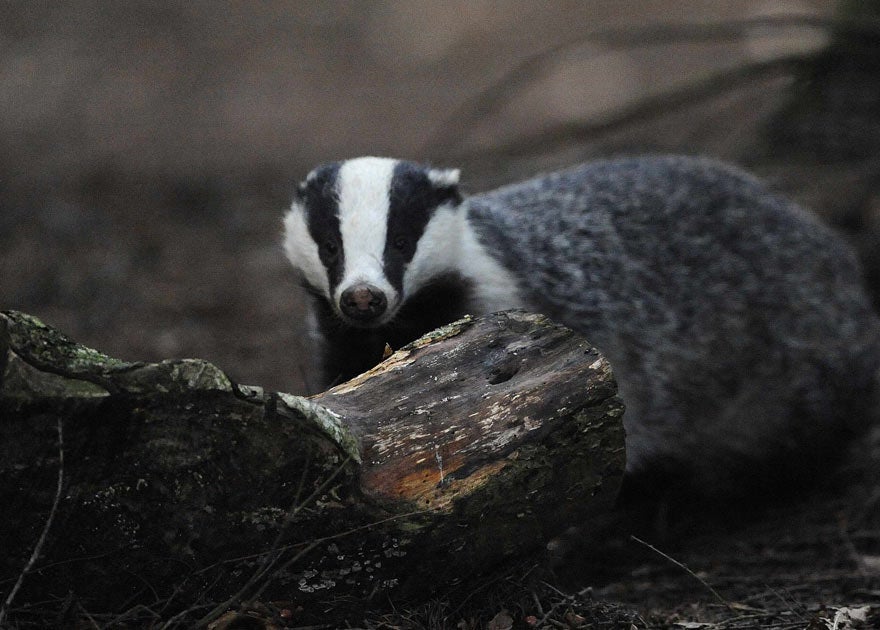Animal campaigners criticise badger cull

Your support helps us to tell the story
From reproductive rights to climate change to Big Tech, The Independent is on the ground when the story is developing. Whether it's investigating the financials of Elon Musk's pro-Trump PAC or producing our latest documentary, 'The A Word', which shines a light on the American women fighting for reproductive rights, we know how important it is to parse out the facts from the messaging.
At such a critical moment in US history, we need reporters on the ground. Your donation allows us to keep sending journalists to speak to both sides of the story.
The Independent is trusted by Americans across the entire political spectrum. And unlike many other quality news outlets, we choose not to lock Americans out of our reporting and analysis with paywalls. We believe quality journalism should be available to everyone, paid for by those who can afford it.
Your support makes all the difference.Animal welfare campaigners vowed to fight badger culling in England after trials were given the go-ahead by Environment Secretary Caroline Spelman.
Six-week trials will take place in two areas next year and could lead to a wider cull across the country as part of efforts to tackle TB in cattle.
Vets' leaders warmly welcomed the move, saying it was "undisputed science" that killing badgers was effective but that controlled shooting had to be tested as a method.
Many other animal welfare groups reacted angrily to the news however, with one considering legal action and another threatening to pursue ministers for breaching international obligations.
Humane Society International (HSI) said it would submit a formal complaint to the 1979 Bern Convention on the Conservation of European Wildlife and Natural Habitats.
It said the cull lacked "legitimate purpose" and posed a significant threat to badger populations and that ministers had failed to examine alternatives.
Mrs Spelman told the Commons a vaccine for the disease would take too long to develop and it was difficult to administer to wild badgers which needed to be trapped first.
Culling could reduce the incidence of bovine TB by 10%, she suggested.
British Veterinary Association president Carl Padgett hailed the trial as "a major step on the long road to tackling this devastating disease.
"We know that badger culling does reduce the infection in cattle - this is undisputed science," he said - but not whether shooting would remove sufficient badgers to cut TB rates.
"We therefore welcome the announcement of these pilots to determine the efficacy and humaneness of this method."
But leading animal charities criticised the decision, the RSPCA accusing the Government of being "more interested in killing badgers than vaccinating them".
The Badger Trust said it was "clearly very disappointed" and would consult lawyers to decide what action could be taken.
And HSI executive director Mark Jones, himself a vet, said Mrs Spelman's decision appeared to be in "clear breach" of the Bern Convention and amounted to "institutionalised cruelty".
"For Defra to blindly push ahead with a pilot badger slaughter, despite compelling scientific evidence that it will be ineffective, hugely damaging to local populations and cruel, is an absurdly misguided decision," he said.
"Badgers are supposed to be a protected species so plans to decimate them surely cannot be reconciled with an international convention on wildlife conservation."
NFU president Peter Kendall said: "Today is another massive step forward in achieving our end goal of a healthy countryside - both for badgers and for cattle.
"I commend Defra for introducing these two pilot areas to confirm the effectiveness, humaneness and safety of controlled shooting.
"We must tackle this terrible disease, a disease that sees tens of thousands of cattle destroyed each and every year. The most recent science shows badger controls are absolutely necessary, together with cattle controls, to get on top of TB. No other country in the world has successfully tackled this devastating disease without first addressing the reservoir of TB in the wildlife
"However, I want to remind everyone this has never been about eradicating badgers; this is about eradicating disease. And there are some serious challenges ahead. But we take this issue extremely seriously and we remain committed to working with Defra and Natural England to deliver an effective TB control plan. This has never been and will not be a quick fix and we're fully prepared for that.
"Controlling TB in the areas that have high and persistent disease levels will help to save cattle and reduce the risk of TB in other areas of the country that are currently without TB. That has to be in everyone's best interests."
PA
Join our commenting forum
Join thought-provoking conversations, follow other Independent readers and see their replies
Comments